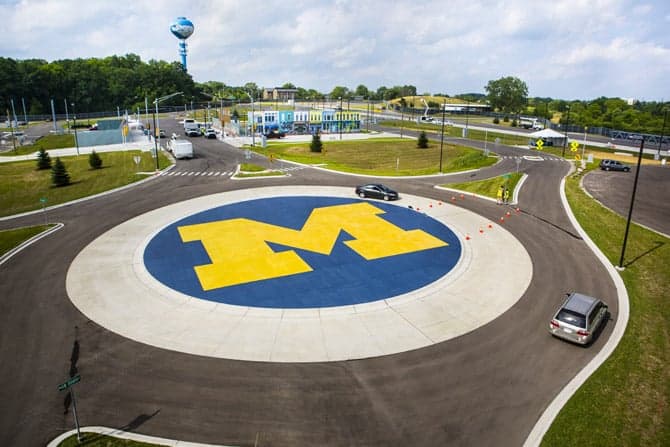
Program Description
Transportation is integral to the prosperity of our society. However, there are ongoing issues with the existing transportation system: high fatality and injury rates, growing levels of congestion and pollution, rising transportation costs and inefficient use of resources. Driven by the rapid development of information and vehicular technologies, we are on the cusp of a revolution in transportation on a scale not seen since the introduction of automobiles. For instance, smart mobile devices retrieve users’ geolocations, enable ubiquitous communications and allow instant peer-to-peer interactions, giving rise to various on-demand mobility services for goods and people such as ridesourcing and ridesharing, as well as crowd-sourced urban delivery. Connected and automated vehicle (CAV) technologies will further revolutionize urban and rural mobility and support a range of uses, from sole vehicle ownership to shared ownership, ridership and subscription services. These technologies hold the potential to substantially improve traffic safety, facilitate mobility and reduce traffic congestion, fuel consumption and emissions.
These emerging technologies present both opportunities and challenges. On-demand mobility services enrich mobility options for people and goods and play an increasingly important role in meeting urban and rural mobility needs. At the same time, these new services come with important security and political challenges that must be addressed through innovative policy strategies at local, state, and federal levels. While CAV technologies will continue to advance towards incorporation into our transportation systems, policy, planning, and operations strategies are key to successfully bringing these technologies to market.
The Next Generation Transportation Systems (NGTS) program addresses these research questions related to the implication of emerging technologies on the planning, design, operations, and management of transportation systems. In addition to developing and pioneering technical research related to the next generation of transportation systems, NGTS seeks to educate and train the next generation of transportation leaders.
The NGTS faculty and students work closely with the University of Michigan Transportation Research Institute (UMTRI), Mcity, and the US DOT Center for Connected and Automated Transportation (CCAT). The NGTS program has access to the most comprehensive university-based facilities in the United States for CAV research. Thanks to the Safety Pilot Model Deployment project sponsored by the US Department of Transportation, the City of Ann Arbor is the world’s first and one of the largest multimodal CAV testing environments in real traffic conditions. Mcity, located on the north campus of U-M, is the world’s first dedicated CAV test facility. Mcity is a simulated city providing safe, repeatable, off-roadway testing of advanced CAV technologies and system concepts. By leveraging such unparalleled research resources, our program especially emphasizes technology evaluation and deployment in real-world-like testing environments, which are necessary to address the aforementioned research questions in a comprehensive and accelerated manner.
Research Areas
Leveraging emerging technologies to better plan, design, regulate, operate or control transportation systems.
Graduate Programs
Apply
NGTS